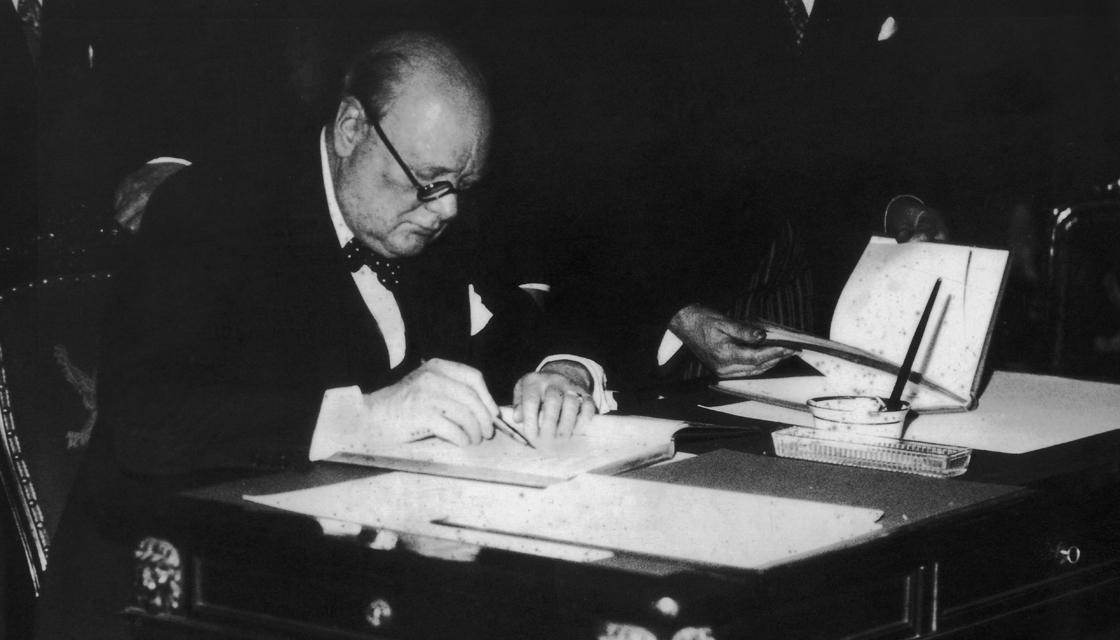
He was Britain's war-time leader - and one of the most influential politicians of the 20th century - but what has only just been revealed is Winston Churchill also believed in aliens.
Written in 1939 and updated in 1950, an unpublished essay he wrote on the topic was handed over to the US National Churchill Museum in Missouri the 1980s where it was unearthed last year.
Astrophysicist Mario Livio was shown the work, titled Are We Alone in the Universe? by the museum's director, much to his surprise.
In a comment piece about the 11-page essay published in Nature this week, Livio publishes excerpts of Churchill's deep thoughts on whether there is extra-terrestrial life.
Livio says Churchill's reasoning for life on other planets is similar to that of modern astrobiology.
That includes the Copernican Principle - that in the vast expanse of the universe, it's hard to believe humans on Earth are unique.
He talks about how all living things need water, that life could only exist "between a few degrees of frost and the boiling point of water" - known as the Goldilocks region, and the most important characteristic of life is to "breed and multiply".
Using that logic and that criteria, he posited that Venus and Mars were the only other planets in our solar system which could harbour life.
Indeed, he may have been right.

Almost eight decades after writing, NASA's rover Spirit found a rock formation which looked strikingly like what's found in hot springs and geysers on Earth.
The silica structures "satisfy the definition of potential biosignatures", Arizona State University researchers wrote in November last year. In 2015, NASA confirmed liquid water was present on Mars.
Churchill ruled out the outer planets like Neptune and Uranus because they were too cold, Mercury because it was too close to the sun, and the moon or asteroids because their gravities are too weak to trap atmospheres.
He was open to the idea that other stars, like our Sun, has other planets orbiting it.
"I am not sufficiently conceited to think that my sun is the only one with a family of planets."
That meant a large number of so-called extrasolar plants would "be the right size to keep on their surface water and possibly an atmosphere of some sort" and in the Goldilocks zone.
Churchill's ideas were well ahead of his time, with the discovery of thousands of extrasolar planets starting in the 1990s.
He even believed it was possible to travel to distant planets such as the moon, or even Venus and Mars "in the not very distant future".
Given there are, at a minimum, thousands of other planets out there, Churchill says "the odds are enormous" there are planets "whose circumstances would not render life impossible".
But he didn't just think there were simple living creatures scattered across the universe, he thought there must be intelligent beings too.
"I, for one, am not so immensely impressed by the success we are making of our civilization here that I am prepared to think we are the only spot in this immense universe which contains living, thinking creatures, or that we are the highest type of mental and physical development which has ever appeared in the vast compass of space and time."
Churchill's interest in science and technology helped fund laboratories and research in post-war United Kingdom which included inventions in molecular genetics and X-ray crystallography.
Newshub.
